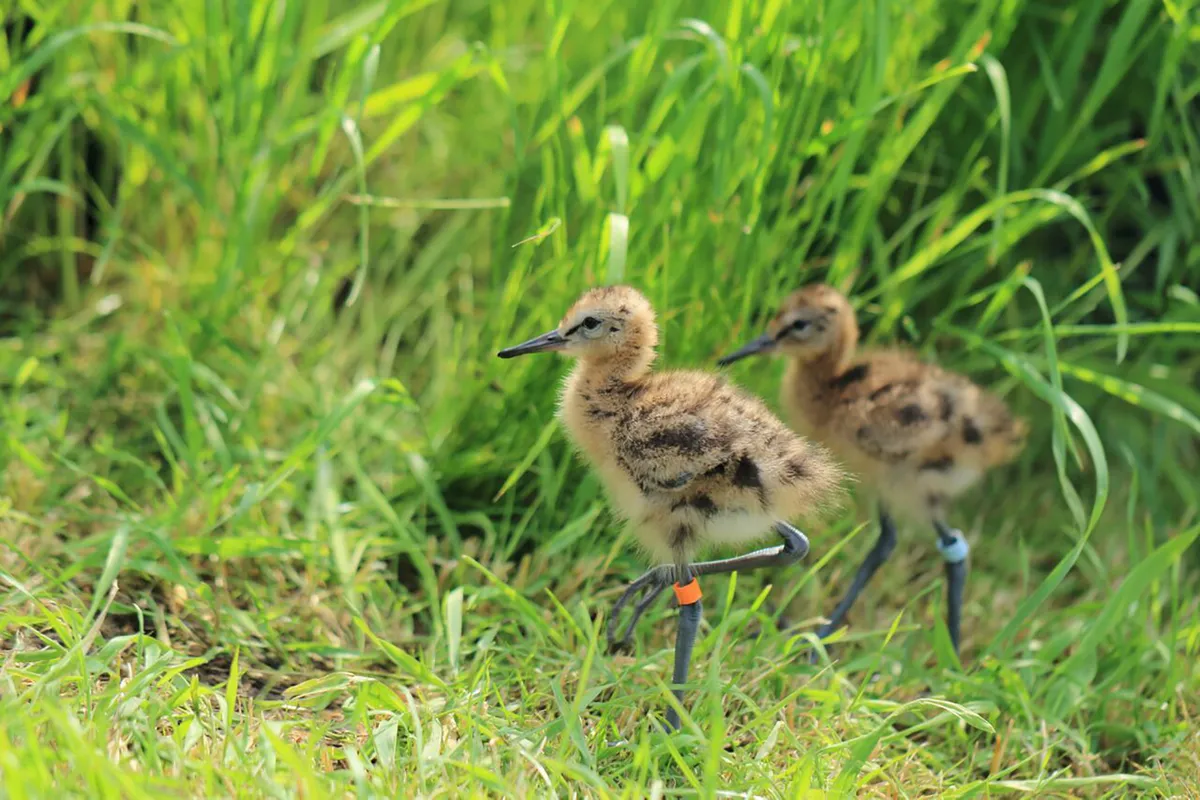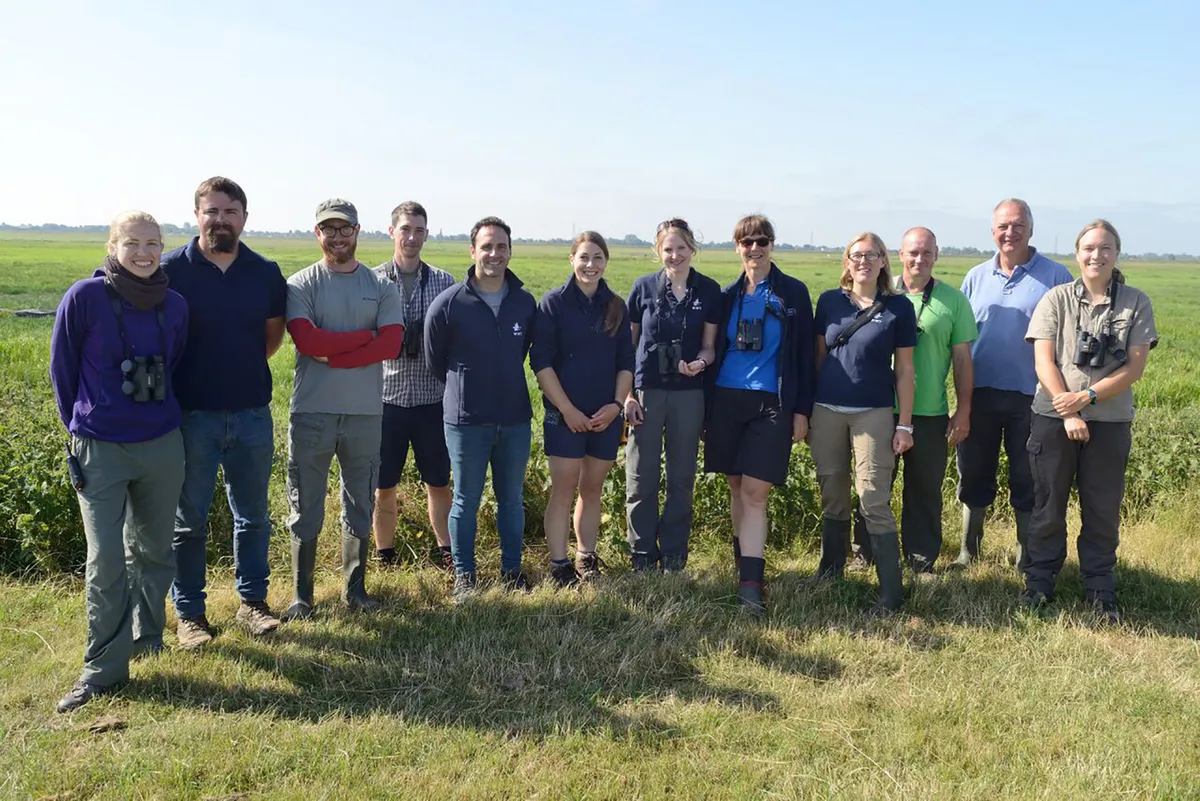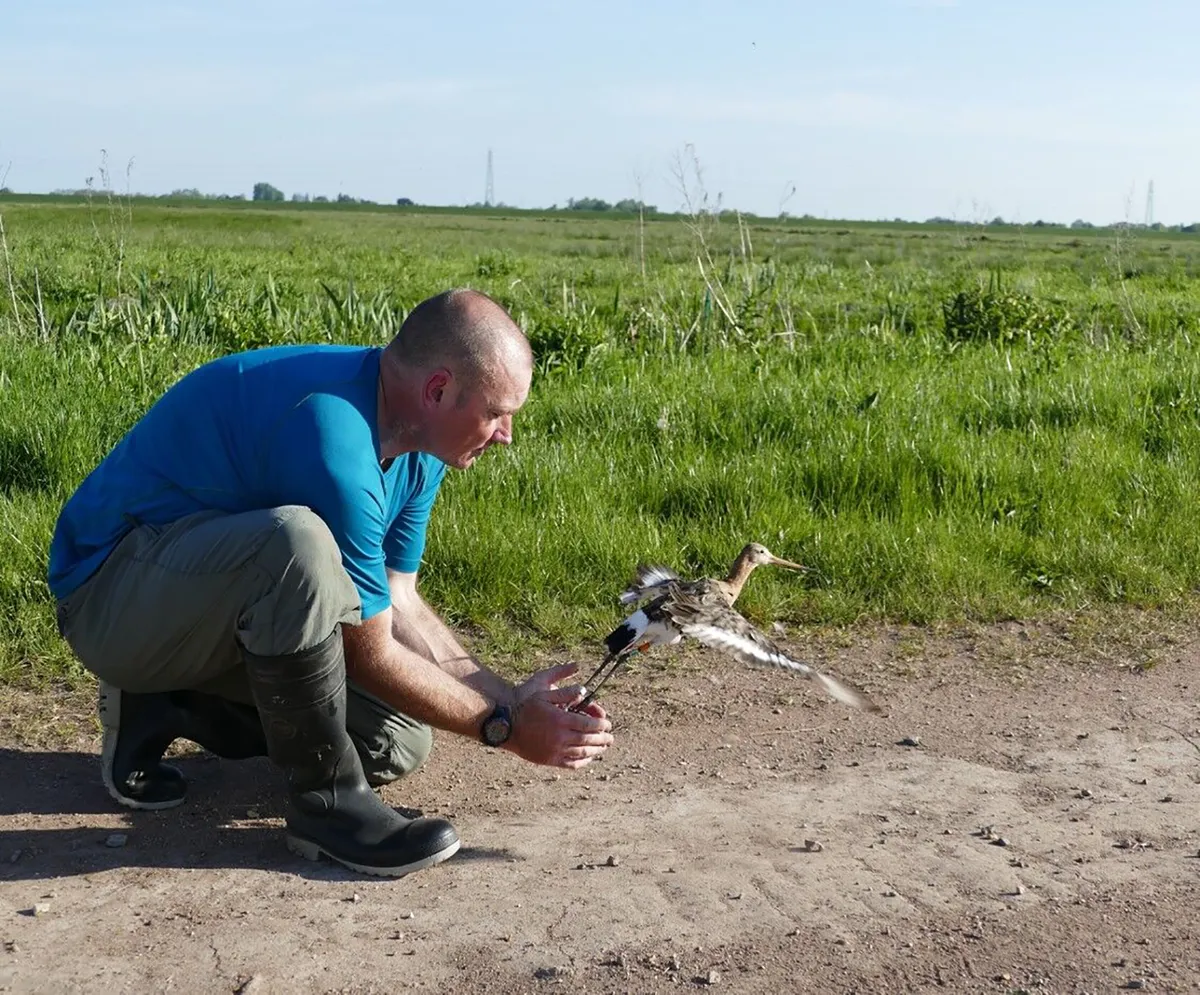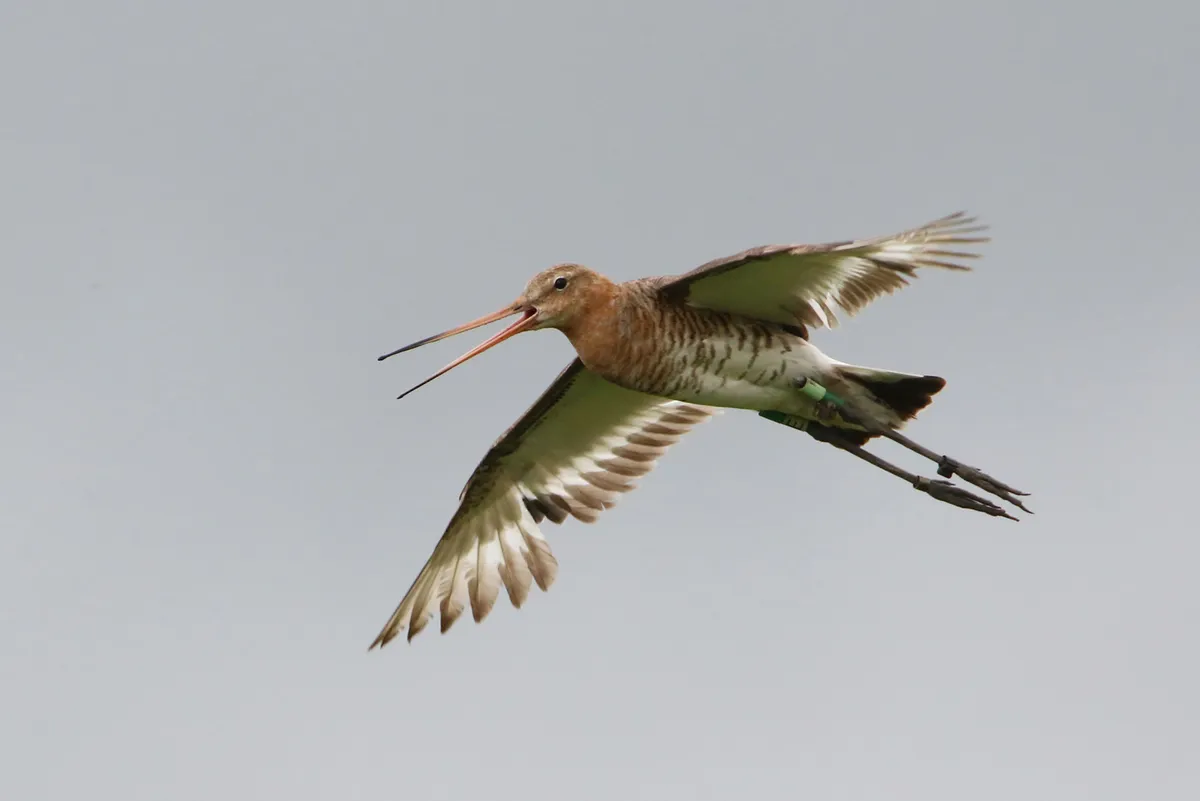Annually gracing the shores of the Nene Washes nature reserve in Cambridgeshire, the elegant black-tailed godwit returns each March to begin its breeding season. Upon their arrival this year, however, the rare wading birds were met with spring flooding and scorching summer heatwaves, hindering their breeding efforts, said Project Godwit, a partnership between RSPB and WWT.
Despite the hostile weather conditions, staff and volunteers at RSPB Nene Washes rescued eggs, reared chicks and built nesting sites for the godwits. Their efforts not only allowed a successful breeding season, but bolstered the rare bird population, reported Project Godwit.

Spring flooding had submerged much of the black-tailed godwits' breeding area when the birds arrived at Nene Washes this March. In desperation, the godwits began laying eggs in a field bordering the fen where the eggs quickly became stuck in wet mud.
Project Godwit had already made plans to raise a number of chicks in special rearing facilities. The team embarked upon the task, collecting 32 additional eggs on top of the 23 they had planned.

“When we rescued the eggs from the fields we were very worried that the chicks might not survive due to the muddy conditions some of the eggs were found in so it was quite a nerve-wracking wait to see if any of them would hatch,” said project manager Hannah Ward.
Once they could fend for themselves, 38 reared chicks joined 18 wild-hatched chicks and were released into the fen.
The team also witness back-tailed godwits breeding at RSPB Ouse Washes, a site only used once before, in 2012.
“We’re thrilled with the progress the birds have made this year," added senior aviculturist from WWT Nicola Hiscock. "In fact two of the godwit chicks raised at Welney last year had families of their own which is a really good sign that the methods we’re using, headstarting the young birds to give them the best chance in the wild, is working.”

Geolocators were fitted to some of the godwits in an effort to monitor the birds’ movements in winter. One such geolocator showed that a female godwit arduously travelled to West Africa and back, stopping at various locations across Europe on her return. Research such as this aids in conservation connectivity across continents, expanding protection for the very rarest of migratory birds.

Members of Project Godwit are now calling on birdwatchers to watch out for released black-tailed godwits, all of which have a unique combination of coloured leg rings.
Report a sighting at projectgodwit.org.uk